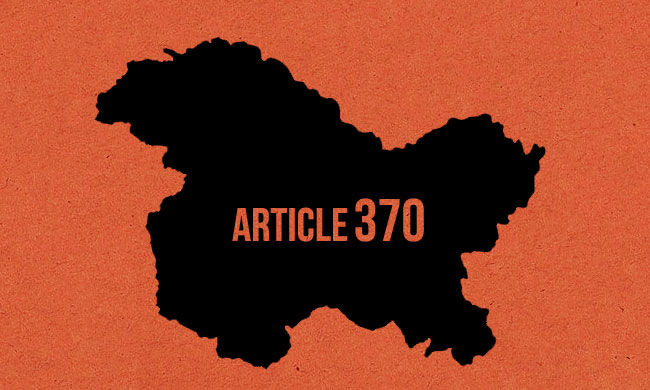Nithyakalyani Narayanan. V
On August 2nd, the Supreme Court heard a batch of petitions challenging the revocation of Article 370 of the Constitution that granted special status to the state of Jammu and Kashmir. A five-judge constitution bench comprised of Chief Justice D.Y. Chandrachud, Justice Sanjay Kishan Kaul, Justice Sanjiv Khanna, Justice B.R. Gavai, and Justice Surya Kant.
Senior Advocate Kapil Sibal represented the petitioners. He argued that Article 370 was no longer a ‘temporary provision’ and that it had assumed permanence after the Constituent Assembly of the state was dissolved. It was also argued that the Parliament could not have declared itself to be the legislature of J&K so as to facilitate the revocation of Article 370 as Article 354 of the Constitution does not authorise such an exercise of power.
Adv. Sibal emphasised that the express terms of clause 3 of Article 370 explain that a recommendation from the Constituent Assembly was essential to wipe out Article 370. Hence, in the wake of the dissolution of the Constituent Assembly whose recommendation was required to abrogate Article 370, the provision could not be revoked. He pointed out that the Parliament exercised the ‘will of the people of J&K’ when it revoked the Article– which is an exercise of political power and as such cannot be done by a legislative body.
On July 11, the Court had fixed July 27 as the deadline for filing written submissions and convenience compilations by different parties. The Bench had said the hearing will be held on a day-to-day basis except on Mondays and Fridays, which are days for hearing other matters in the court. Only fresh petitions are taken up on these days for admission hearings and regular matters are not heard.
The court observed that the affidavit of the Centre with respect to the conditions in Jammu and Kashmir after August 5, 2019, notification repealing Article 370 will have no bearing on the constitutional issue to be adjudicated by the five-judge Bench. On the said day, the Central Government had ridden the special status of the State of Jammu and Kashmir and bifurcated it into two Union Territories.

